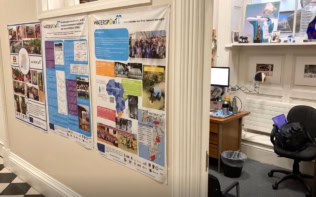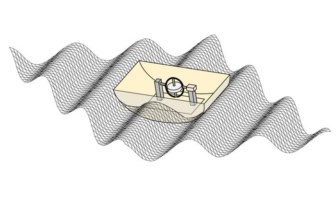The Liverpool Centre for Doctoral Training (CDT) for Innovation in Data Intensive Science is bridging disciplines and empowering PhD students to excel in data-intensive research in both industry and academia

Physics is a constantly evolving field – how do we make sure the next generation of physicists receive training that keeps pace with new developments and continues to support the cutting edge of research?
According to Carsten P Welsch, a distinguished accelerator scientist at the University of Liverpool, in the age of machine learning and AI, PhD students in different physics disciplines have more in common than they might think.
“Research is increasingly data-intensive, so while a particle physicist and a medical physicist might spend their days thinking about very different concepts, the approaches, the algorithms, even the tools that people use, are often either the same or very similar,” says Professor Welsch.
Data science is extremely important for any type of research and will probably outlive any particular research field
Professor Welsch
Welsch is the director of the Liverpool Centre for Doctoral Training (CDT) for Innovation in Data Intensive Science (LIV.INNO). Founded in 2022, the CDT is currently recruiting its third cohort of PhD students. Current students are undertaking research that spans medical, environmental, particle and nuclear physics, but their projects are all underpinned by data science. According to Professor Welsch, “Data science is extremely important for any type of research and will probably outlive any particular research field.”
Next-generation PhD training
Carsten Welsch has a keen interest in improving postgraduate education, he was chair of STFC’s Education Training and Careers Committee and a member of the UKRI Skills Advisory Group. When it comes to the future of doctoral training he says “The big question is ‘where do we want UK researchers to be in a few years, across all of the different research areas?’”
He believes that LIV.INNO holds the solution. The CDT aims to give students with data-intensive PhD projects the skills that will enable them to succeed not only in their research but throughout their careers.
Lauryn Eley is a PhD student in the first LIV.INNO cohort who is researching medical imaging. She became interested in this topic during her undergraduate studies because it applied what she had learned in university to real-world situations. “It’s important that I can see the benefits of my work translated into everyday experiences, which I think medical imaging does quite nicely,” she says.
Miss Eley’s project is partnered with medical technology company Adaptix. The company has developed a mobile X-ray device which, it hopes, will enable doctors to produce a high-quality 3D X-ray image more cheaply and easily than with a traditional CT scanner.
Her task is to build a computational model of the X-ray device and investigate how to optimize the images it produces. To generate high-quality results she must simulate millions of X-rays. She says that the data science training she received at the start of the PhD has been invaluable.
From their first year, students attend lectures on data science topics which cover Monte Carlo simulation, high-performance computing, machine learning and AI, and data analysis. Lauryn Eley has an experimental background, and she says that the lectures enabled her to get to grips with the C++ she needed for her research.
Boosting careers with industry placements
Professor Welsch says that from the start, industry partnership has been at the centre of the LIV.INNO CDT. Students spend six months of their PhD on an industrial placement, and Lauryn Eley says that her work with Adaptix has been eye-opening, enabling her to experience first-hand the fast-paced, goal-driven world of industry, which she found very different to academic research.
While the CDT may particularly appeal to those keen on pursuing a career in industry, Professor Welsch emphazises the importance of students delivering high-quality research. Indeed, he believes that LIV.INNO’s approach provides students with the best chance of success in their academic endeavours. Students are taught to use project management skills to plan and deliver their projects, which he says puts them “in the driving seat” as researchers. They are also empowered to take initiative, working in partnership with their supervisors rather than waiting for external guidance.
LIV.INNO builds on a previous programme called the Liverpool Big Data Science Centre for Doctoral Training, which ran between 2017 and 2024. Professor Welsch was also the director of that CDT, and he has noticed that when it comes to partnering with student projects, industry attitudes have undergone a shift.
“When we approached the companies for the first time, you could definitely see that there was a lot of scepticism,” he says. “However, with the case studies from the first CDT, they found it much easier to attract industry partners to LIV.INNO.” Professor Welsch thinks that this demonstrates the benefits that industry-academia partnerships bring to both students and companies.
The first cohort from LIV.INNO are only in their second year, but many of the students from the previous CDT secured full-time jobs from the company where they did their placement. But whatever career path students eventually go down, Carsten Welsch is convinced that the cross-sector experience students get with LIV.INNO sets them up for success, saying “They can make a much better informed decision about where they would like to continue their careers.”





